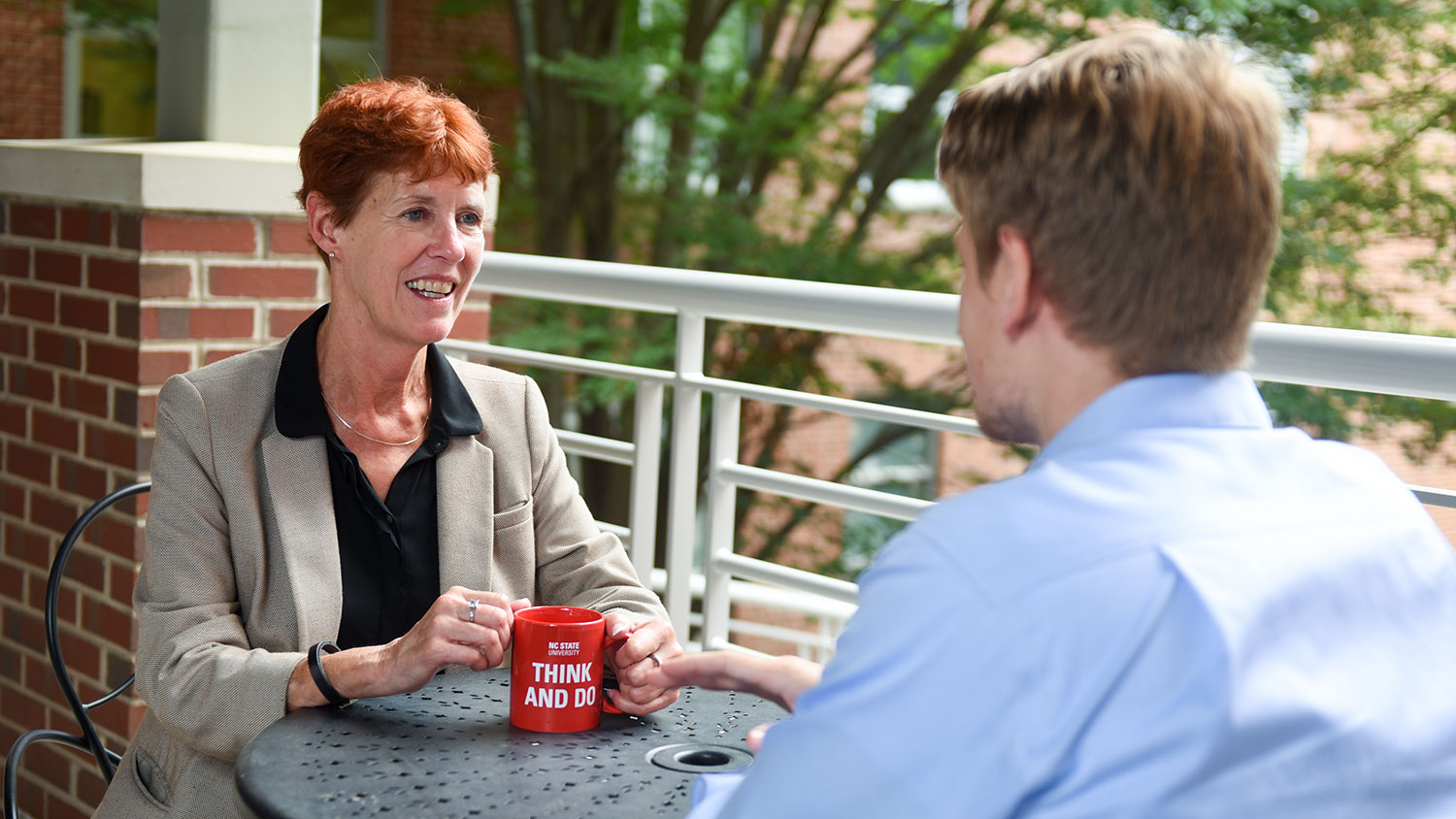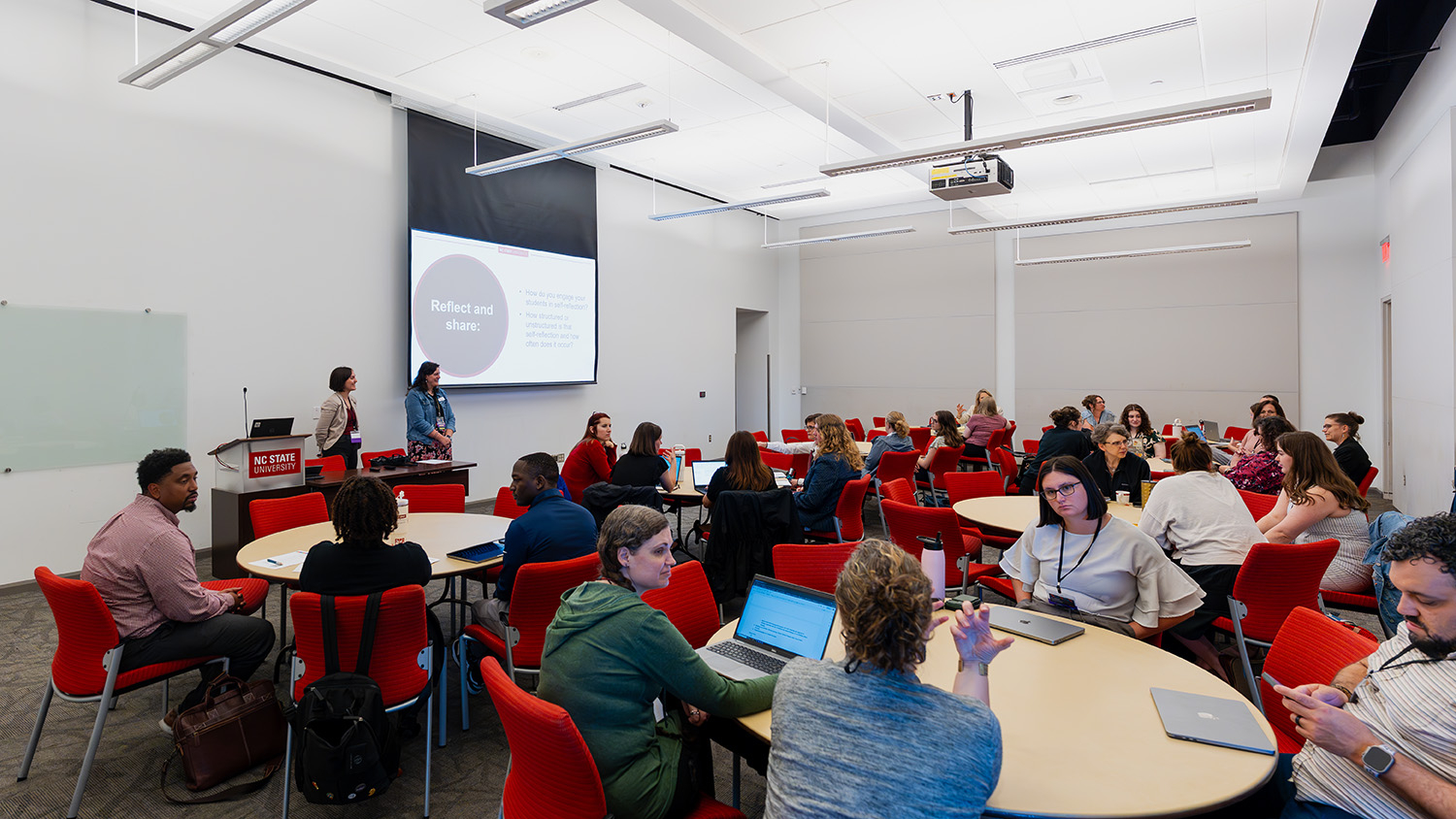Jenkins MAC Program Prepares Graduates for an Evolving Accounting Field

The stereotypical accountant — a middle-aged white man with a green eyeshade poring over pages of numbers in a backroom — lives only in movies from the 1950s. Kathy Krawczyk, director of the Jenkins Master of Accounting Program at the NC State Poole College of Management for 13 years now, should know. From the time she joined Poole College as a brand-new assistant professor when the MAC program started 25 years ago, she has helped prepare every new class of MAC students for their careers.
“I have taught every single student going through the MAC program,” said Krawczyk, now the Dixon Hughes Goodman Professor of Accounting. “My experience getting to know all of the students carries over to keeping strong connections to them as alumni.”
A CPA herself, Krawczyk joined the Poole College faculty after receiving her doctorate in accounting and, prior to that, having worked for four years with one of the Big Eight accounting firms. She has undergraduate and master’s degrees from Southern Illinois University at Carbondale and a doctorate in accounting from the University of Texas at Austin. She specializes in tax, and developed the tax research course for the initial Jenkins MAC Program.
Because the MAC program concentrates on equipping students with the practical skills they will need in their accounting careers, the tax research course has changed with the times. The course now offers a mix of financial, tax and audit research.
“Accounting standards in the U.S. have become more principle-based over time,” Krawczyk said. “They’re less rule-oriented, and you have to make judgments. We teach students how to make those judgments, how to apply judgment frameworks and make sure students analyze all aspects of transactions.”
The course teaches a single research process that can be applied to tax law, auditing standards and financial accounting standards, and contrasts how the process differs in each specialty area.
The profession changes constantly, and accountants are more engaged with companies in ways they weren’t even a decade ago. For instance, with new software programs, tax returns take less time to do, but companies rely on accountants more for tax-planning recommendations. The Jenkins MAC Program has developed new concentrations, such as enterprise risk management, IT and tax strategy in response to all of the changes.
Academic research becomes all the more important as the accounting profession shakes off its conservative mantle and grows more dynamic. Krawczyk, along with Poole College colleagues Frank Buckless and Scott Showalter, developed a computer simulation in which students enter a virtual beer factory via their accountant avatar and conduct inventory counts and auditing tasks over the course of a semester. The three researchers have published articles for practitioners and academics on what they’ve learned through teaching the simulation. Last year, Krawczyk and her co-researchers received the prestigious Innovation in Accounting Education Award from the American Accounting Association.
Krawczyk and Buckless also conduct research analyzing data on what aspects flag a student who is most likely to succeed in an accounting program and published an article in the international journal Accounting Education stemming from this research.
“We found that the more engaged the student is, the better they’ll do in the program,” Krawczyk said. “Engagement was a piece not previously studied or documented.”
Krawczyk and Buckless are continuing their research by examining how personality affects an accountant’s success. Krawczyk administers the Myers-Briggs Type Indicator to her students, and then she and Buckless compare those results to the student GMAT scores, program GPA and the job they accept after graduation.
“Students do a lot of teamwork in the program, because that’s how they’ll work in their practice,” she said. “You might be on a team with someone who is your opposite, and you have to figure out how to work together and get the project done.”
The Jenkins MAC Program boasts a mix of demographics among its students and faculty. Its graduates enter a field of opportunities in advisory services, entrepreneurial ventures, corporations, government offices, and nonprofits — everything from the boardroom to the backroom, Krawczyk said.
“It’s been particularly exciting to see a more diverse cohort of students entering the program each year on their way to becoming licensed CPAs. I’m not sure there is a typical accountant anymore.”


